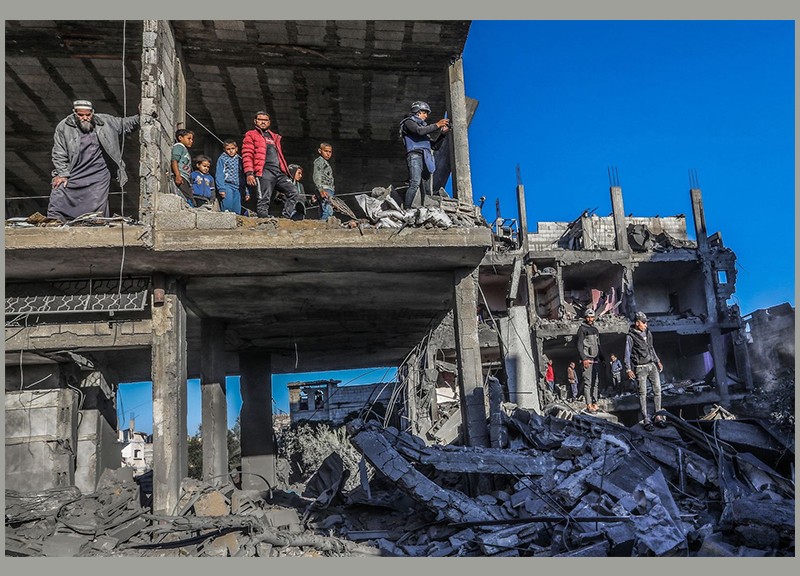
Palestinians overwhelmingly hold Israel responsible for the death and destruction, but criticism of the militant group is spreading
By Margherita Stancati and Abeer Ayyoub - The WSJ
When news of the Oct. 7 attacks on southern Israel by Hamas militants reached Palestinians in the Gaza Strip, many took to the streets in celebration, cheering fighters as they paraded hostages through the enclave.
Since then, however, quiet criticism has begun spreading against the group, with Gazans blaming the militants for provoking Israel’s wrath and for their inability to shield the population from a devastating war and a humanitarian crisis.
“People are dying every minute,” said a 56-year-old businessman from Gaza. “Hamas is the one that dragged us into this terrible vortex.”
Nearly 20,000 people have been killed in Gaza since the start of the war, Palestinian health officials said. The overwhelming majority of Palestinians blame Israel for the death, destruction and dislocation caused by the war. Yet, many Gazans say Hamas also is responsible—and those voices are getting louder.
A survey by the Palestinian Center for Policy and Survey Research, a Ramallah-based think tank, found that one in five Gazans polled blamed Hamas for their suffering in the war. The survey, completed in early December, also found that support for Hamas, which has ruled the enclave with an iron fist for years, had increased slightly since Oct. 7, with 42% of respondents choosing it over other Palestinian parties.
In the West Bank, which is far from the fighting in Gaza, by contrast, support for Hamas has surged between September and early December, when 44% of respondents said they backed the group, according to the survey.
“Gaza, which usually gives Hamas greater support, is showing more criticism of Hamas than the West Bank. There is more questioning of the decision to go to war,” said Khalil Shikaki, director of the think tank and a political-science professor based in Ramallah.
Hamas’s popularity among Gazans got a boost in the immediate aftermath of Oct. 7, with many Palestinians seeing the attacks as a response to what they decry as mistreatment by Israel. The survey also found that most respondents were unaware of the scale of the killings and other violence committed by Hamas militants during the attacks.
The assault, which included terrorist attacks on a music festival and agricultural communities, left more than 1,200 people dead—most of them civilians, Israeli authorities said.
“Damn Hamas,” said a hairdresser originally from Gaza City who is sheltering in Rafah, near the Egyptian border. “May God be my witness: If I see Ismail Haniyeh, I will hit him with my slippers,” she said, referring to Hamas’s political leader. Throwing wear at someone is considered insulting in the Arab world.
She is one of about 1.9 million people, about 85% of the Gaza Strip’s population, who fled their homes because of the war and are internally displaced. Like many Gazans, she said she worries she might not be able to return home.
“Next week, we may end up in Sinai,” the desert region across the Egyptian border, she said. “What for? What did the resistance do for us?”
Despite the rising discontent with Hamas, residents of Gaza are unlikely to openly challenge the group while the war is continuing.
“I hate Hamas, the government. I never respected them. But the militants? I believe in them so much, they are sacrificing their souls for the sake of Palestine,” said a 36-yearold banker from Gaza City.
Yet she does hold one thing against the militants: Their failure to prepare for the consequences of the war, such as food and medical supplies running out. “If they prepared for the attack for two years, why didn’t they also make plans for the two million Palestinians they put under fire without asking their opinion?”
Such simmering opposition raises questions about the group’s long-term hold over the strip.














